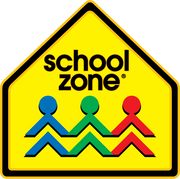Boost early literacy with fun preschool letter activities
Early literacy is crucial for a child's development, and preschool letter activities play a significant role in this process. Engaging in these activities helps children recognize letters, understand their sounds, and begin forming words. The benefits of these activities are many, including improved cognitive skills, better communication abilities, and a strong foundation for future learning.
In this article, we'll explore the importance of early education, how to create a positive learning environment at home, and various fun and educational preschool letter activities. We'll also discuss the benefits of using preschool letter workbooks and how to incorporate alphabet and letter sounds workbooks and activities into your child's learning routine.
Importance of early education
Early education provides children with a head start in their learning journey. It supports their cognitive, social, and emotional development. Engaging in educational activities at a young age helps children develop essential skills such as problem-solving, critical thinking, and communication.
According to research, high-quality early care and education (ECE)have significant benefits for children's learning and development. For more detailed information, you can read the full report in "Children's Learning and Development Benefits from High-Quality Early Care and Education: A Summary of the Evidence."
By investing time in early education, parents and caregivers can provide their children with the tools they need to succeed in school and beyond.
Setting up a positive learning environment at home
Creating a positive learning environment at home is essential for your child's success. A well-organized and inviting space can make learning more enjoyable and effective. Here are some tips to help you set up a conducive learning environment:
- Designate a Learning Space: Choose a quiet, well-lit area in your home where your child can focus on their activities without distractions.
- Keep Supplies Handy: Stock up on essential supplies like pencils, crayons, paper, and workbooks and other resources with activities that develop alphabet skills. Having everything within reach encourages independence and keeps the learning process smooth.
- Create a Routine: Establish a daily routine that includes specific times for learning activities. Consistency helps children know what to expect and makes it easier for them to transition into learning mode.
- Incorporate Fun Elements: Use colorful posters, educational toys, and interactive tools to make the learning space engaging. This can spark your child's curiosity and make learning more fun.
- Encourage Breaks: Allow for short breaks between activities to keep your child refreshed and focused. This helps prevent burnout and maintains their interest in learning.
For more tips on creating a positive learning environment, check out this helpful guide from Digital Promise.
Fun and educational preschool letter activities
- Letter Scavenger Hunts: Hide letters around the house and have your child search for them. Once they find a letter, ask them to name it and say a word that starts with that letter.
- Alphabet Puzzles: Use puzzles that feature letters of the alphabet. These puzzles help children recognize letters and understand their order.
- Letter Crafts: Get creative with letter crafts. For example, you can cut out the shape of a letter and have your child decorate it with stickers, glitter, or paint. This hands-on activity reinforces letter recognition.
- Alphabet Songs: Sing alphabet songs together. Songs like the ABC song can help children remember the order of the letters and their sounds.
- Letter Matching Games: Create a matching game with uppercase and lowercase letters. This activity helps children understand that letters can look different but still be the same.
These activities are not only educational but also fun, making learning letters an entertaining part of your child's day.
Using preschool alphabet workbooks
Here are some benefits of using preschool alphabet workbooks:
- Structured Learning:Workbooks offer a clear and organized way for kids to practice letters.
- Practice and Repetition: Repeated practice helps solidify letter recognition and writing.
- Variety of Activities: Different types of workbooks such as tracing, matching, and coloring, keep learning fun and interesting.
Some popular types of preschool alphabet workbooks include:
- Tracing: These help kids practice writing letters by tracing over dotted lines.
- Matching: Kids match letters with pictures or other letters, enhancing recognition skills.
- Coloring: Coloring letters can be a fun way to associate letters with colors and shapes.
Incorporating alphabet and letter sounds workbooks
Alphabet workbooks are essential tools for helping kids learn the alphabet. They can be used in various ways to make learning both fun and effective.
Here are some tips on using alphabet workbooks effectively:
- Interactive Activities: Use workbooks that involve coloring, dot-to-dot, or other interactive elements to keep kids engaged.
- Consistent Practice: Regular use of these worksheets helps reinforce letter recognition and writing skills.
- Combine with Phonics: Incorporate phonics lessons to help kids understand the sounds each letter makes. For more information on phonics, visit Phonics Instruction | Reading Rockets.
Letter sounds workbooks can be particularly helpful in supporting phonics learning. These workbooks focus on the sounds that letters make, which is crucial for early literacy development.
Here are some ways letter sounds workbooks can support learning:
- Sound Recognition: Activities that focus on identifying and matching letter sounds help build phonemic awareness.
- Blending Sounds: Activities that involve blending sounds to form words can improve reading skills.
- Fun Activities: Activities like sound-matching games and rhyming exercises make learning enjoyable.
To further support your child's learning journey, explore School Zone's range of educational products, including workbooks, flash cards, and learning kits. These resources are designed to make learning enjoyable and effective.











